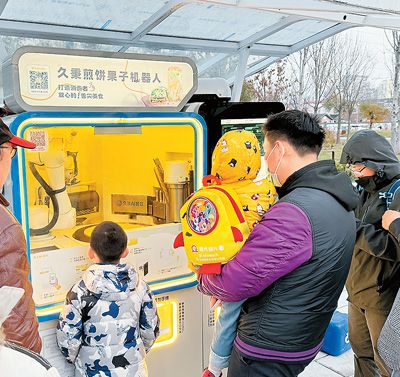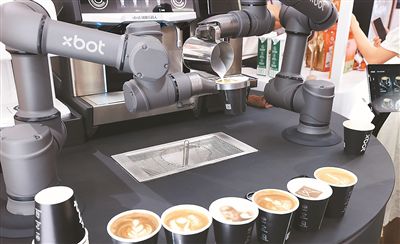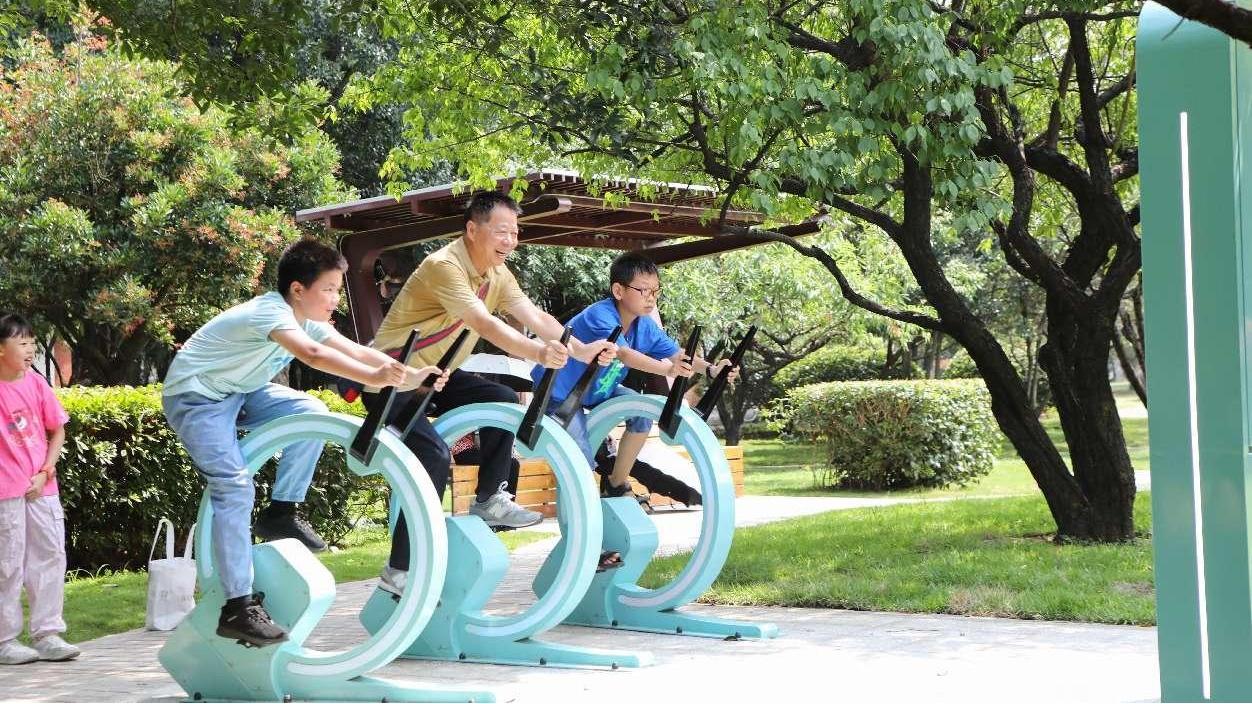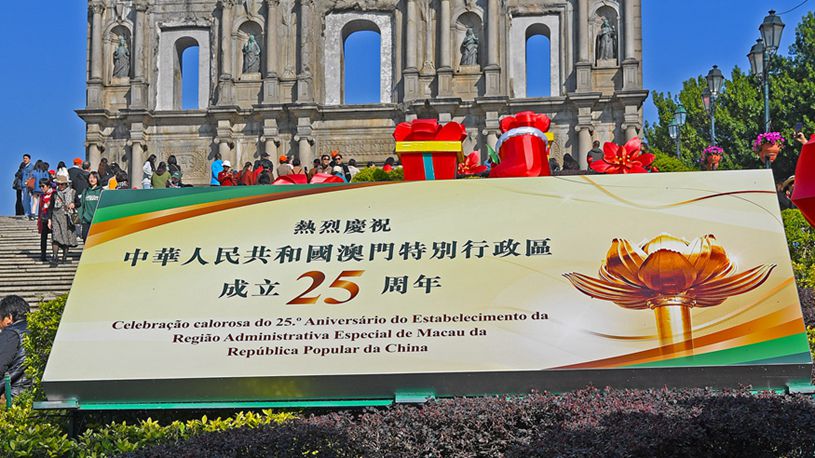AI-powered robots transform cooking with convenience and efficiency

A robot makes Jianbingguozi, or pancakes rolled with a crisp fritter, in a park in Beijing. (Photo courtesy of the interviewee)
Artificial intelligence (AI)-powered robots are transforming the kitchen in the catering industry. In a restaurant in Jinjiang district of Chengdu, southwest China's Sichuan Province, an AI-powered robot chef can stir-fry a delicious dish in just 63 seconds.
"The dish tastes good, and the service is fast. If the shop owner didn't tell me, I wouldn't be able to tell that this dish was cooked by a robot," a customer said. In the kitchen, five robots show off their skills in frying, stir-frying, cooking, and deep-frying, receiving high praise from customers for dishes they cook.
"AI-powered catering robots simulate manual cooking techniques, aiming to replicate the flavor and texture of handmade dishes," said Yu Qinwei, chairman of Jiubing Robot (Beijing) Co., Ltd.
Recently, a face-off between a robot and Hunan cuisine chef Yang Sun caught the attention of many in the culinary world. The two "chefs" each prepared three dishes, with dishes cooked by both being equally impressive in terms of presentation, fragrance, and flavor. The robot outperformed in speed, completing the task in just 3 minutes and 8 seconds, while Yang took 9 minutes and 32 seconds to finish.

AI-powered cooking robots work in the kitchen of a restaurant in Jiangyin city, east China's Jiangsu Province. (Photo courtesy of the interviewee)
Behind the dazzling skills of the robot chef lie the support of a large AI model. The model launched by Wan AIChef integrates ingredient perception, cooking decision-making, and equipment control. It not only enables automated cooking but also provides personalized customization based on user taste preferences.
The capabilities of AI chefs are evolving. Some AI food service robots can not only cook tasty dishes, but also take care of tasks like preparing ingredients, washing and chopping vegetables, and packaging meals from start to finish.
Utilizing AI chefs has emerged as a fresh approach for catering businesses to cut costs and boost productivity. The acquisition and upkeep expenses of AI food service robots are reasonable, making them a favorable choice for large-scale dish preparation.
According to an annual report on the development of China's catering industry in 2024, released by the China Hospitality Association, 65.7 percent of surveyed companies have integrated digitalization into their development plans, and the application scenarios of AI in the catering industry are expanding.
Recently, some AI food service robots have obtained licenses for operation. The Administration for Market Regulation of Beijing's Haidian district issued a food operation license to EncoSmart, a robotics company. Industry insiders note that Beijing is leading the way in certifying AI chefs, which will accelerate the adoption of AI technology in the catering industry.

An automatic coffee machine makes coffee for visitors at the fourth China International Consumer Products Expo (CICPE) in Haikou, capital city of south China's Hainan Province. (Xinhua/Yang Guanyu)
Chen Zhen, founder and CEO of EncoSmart, believes that many dishes are highly standardized at present, making them very suitable for unmanned operation. Robots can ensure the quality and consistency of food production.
However, according to cooking enthusiast Luo Jian, an AI chef lacks the true essence of cooking. He believes that the interplay between ingredients and cooking time stems from a chef's accumulated experience, a flavor that machines cannot easily replicate.
Industry insiders widely believe that human-machine collaboration will be the future trend in the restaurant industry. On one hand, intelligent technologies can free highly skilled chefs from tedious daily tasks, allowing them to focus on creative and refined culinary production. On the other hand, as technology continues to advance, with the integration of tools like knowledge graphs and machine learning, future robots may even possess the capability to assist chefs in fine-tuning dish flavors and cooking parameters.
Photos
Related Stories
- Development of humanoid robots thrives in Guangdong-Hong Kong-Macao Greater Bay Area
- Humanoid robots empowers sci-tech fusion in S China's Greater Bay Area
- Chinese researchers develop amphibious spherical robot assisting in police patrol in E.China’s Zhejiang
- Family lawns in Europe, U.S. "mow-tivated" by Chinese robots
- Successful remote single-arm robotic surgery in China's Xizang
- China possesses distinct advantages in humanoid robot sector despite external curbs
- Chinese team designs robotic insect running swifter than cockroaches
- French doctor uses Chinese robot to perform remote cancer surgery for patient in Morocco
- Robotic dog patrols Hangzhou streets
- China emerges as global frontrunner in industrial robot density: report
Copyright © 2024 People's Daily Online. All Rights Reserved.









